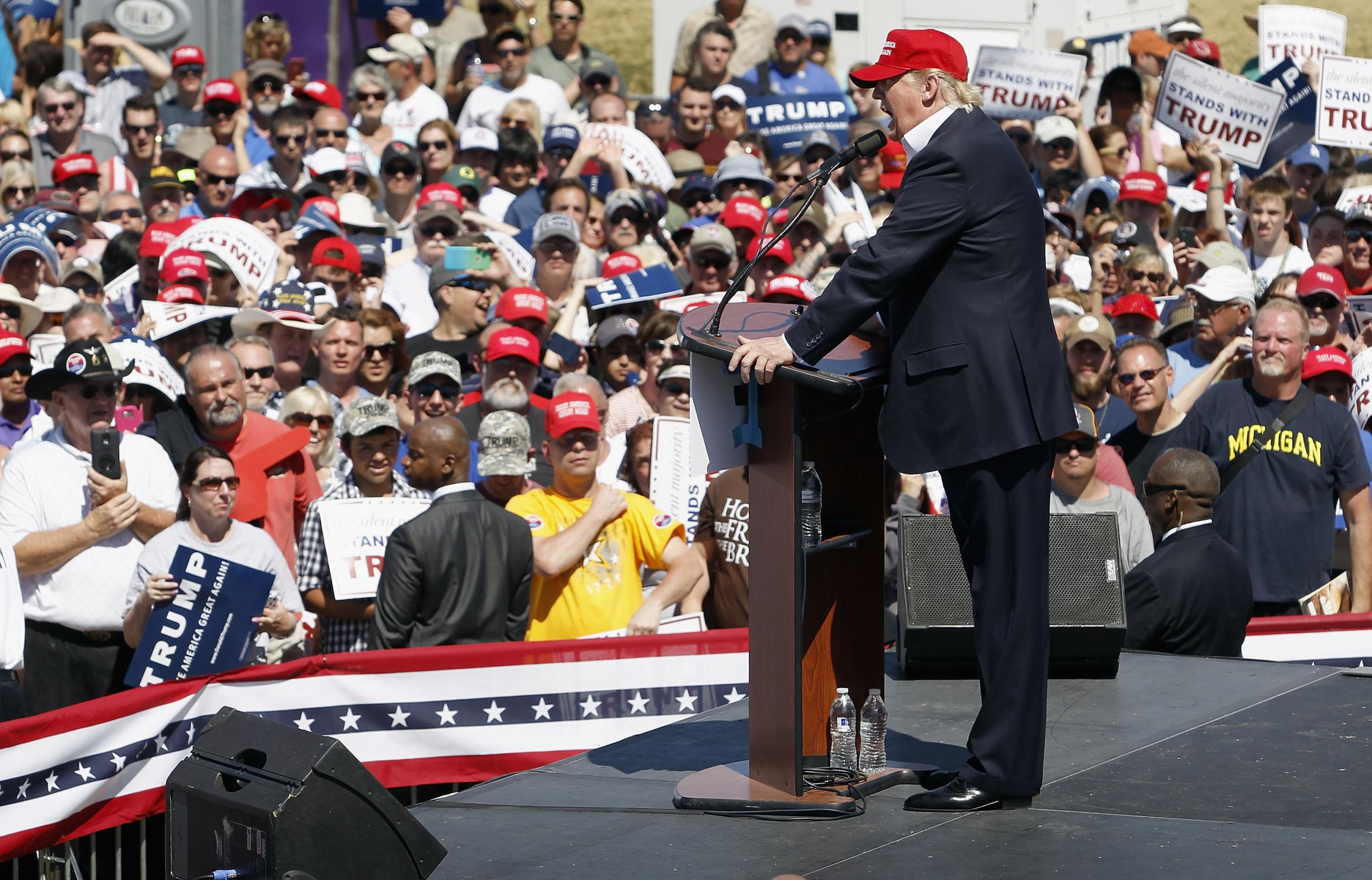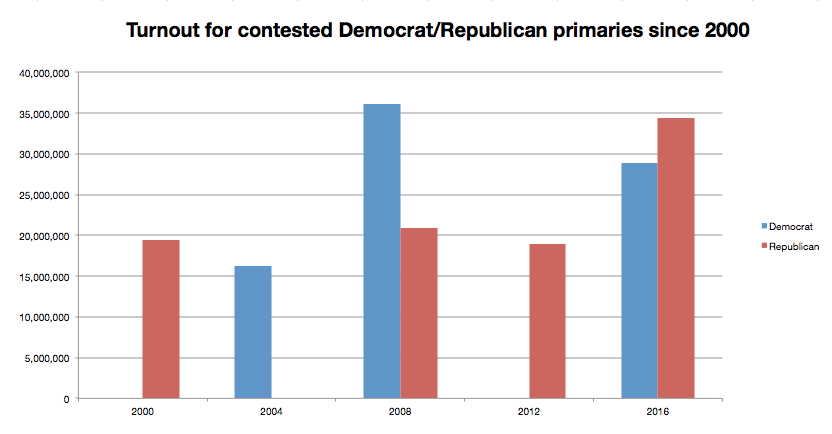US election: Trump is doing for Republicans what Obama did for Democrats in 2008
Trump has reversed the huge turnout advantage among primary voters that Obama created for Democrats in 2008

Donald Trump is on course to bring 14 million more Americans than usual into the Republican primary process, a new Independent analysis can reveal.
More than 20 million Americans have already voted in this year’s Republican primaries, with contests now complete in 29 states. Just 12 million Americans cast a vote in these 29 states in 2008.
In other words, for every three Americans who participated in 2008, five are taking part in this year’s Trump-fuelled contests; turnout is up 64 per cent.
If the increased turnout seen so far holds across all 50 states, more than 34 million Americans will cast a vote on the Republican side in this cycle.
That would shatter the high of 21 million who voted in 2008, as well as the 19 million who voted in 2000 and 2012. Until Trump, a figure of around 20 million was the norm.
The huge rise in Republican turnout contrasts with a 20 per cent fall in turnout in the Democratic race compared to 2008.
But the 2008 figures were a huge leap on Democratic turnout in 2004, inspired by the unprecedented candidacy of Barack Obama, and almost twice as many Americans voted in 2008’s Democratic contests than that year’s Republican race.
In other words, Republicans had a lot of catching up to do.
Yet Trump hasn’t just helped Republicans catch Democrats: they’ve now overtaken them, with more than 5 million more Americans on course to vote in the Republican rather than Democratic primaries.
Only 29 million Americans are on course to vote in this year’s Democratic race, despite the potentially historic election of Hillary Clinton as President and the insurgent candidacy of Bernie Sanders.

Just 15 million Americans have participated in the 26 state contests on the Democratic side so far, compared to 19 million in these same states in 2008.
Taken together, turnout so far suggests around 63 million Americans will vote in a primary on either side this year.
That compares to the 131 million and 129 million who voted in the past two US general elections, while 122 million voted in 2004.
In other words, nearly half of general election voters are participating in this year’s primary (although turnout may of course rise in the general).
As Trump and Clinton lock up their party’s nominations and thoughts turn to November’s general election, two questions stand out.
One, how much of their party’s primary voters can Trump and Clinton win in the general election?
Trump has won just 37 per cent of his party’s voters so far, or 7.5 million voters. While Clinton has won 58 per cent of Democratic voters, or nearly 9 million. (Bernie Sanders has won a greater share of Democrats than Trump has won Republicans.)
How many of those who didn’t vote for them will do so in November?
And two, how do the other half of the electorate – the 60-70 million Americans who voted in the past two general elections but won’t vote in this year’s primaries – view each candidate?
Dozen of polls have suggested Trump is unpopular among many of them, with Clinton leading by nine points in a hypothetical general election match-up against him. But Trump’s appeal has proven too unpredictable so far to write off so soon.
Join our commenting forum
Join thought-provoking conversations, follow other Independent readers and see their replies
Comments
Bookmark popover
Removed from bookmarks